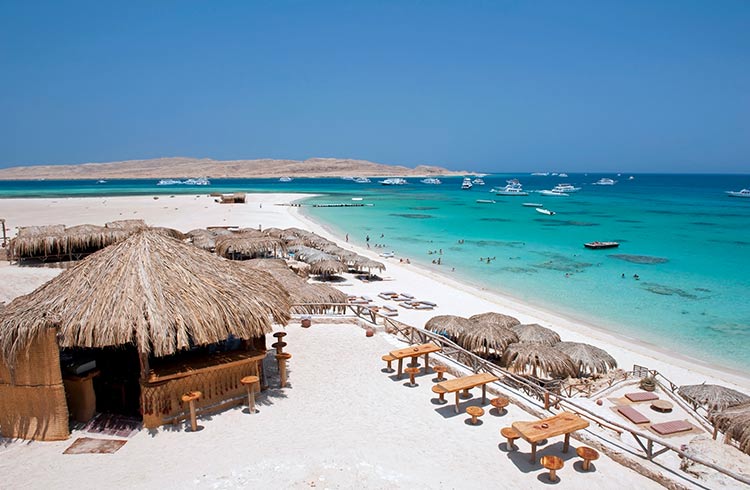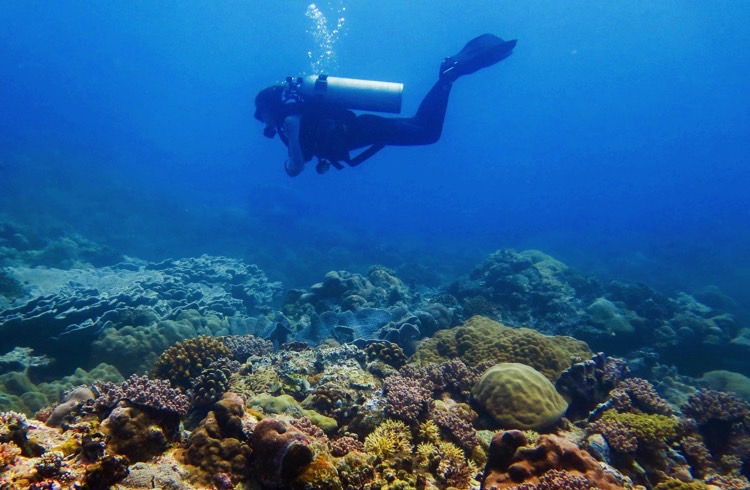Diving in Egypt: Is it Safe to Swim in the Red Sea?
Egypt's Red Sea is ideal for scuba diving and snorkeling. But is it safe? Find out how to swim safely on your adventure with these safety tips.
 Photo © Getty Images/majaiva
Photo © Getty Images/majaiva
The Red Sea is a premier destination for diving and water sports, and is home to stunning marine life. Here, you can find underwater coral gardens and shipwrecks such as the famous Sharm al-Sheikh, Ras Mohammed, Hurghada and Marsa Alam.
But before you go to Egypt, find out about diving rules and regulations, and how to stay safe swimming in the Red Sea.
- Is it safe to swim in Egypt's Red Sea?
- Dive guides in Egypt
- Diving and water conditions in the Red Sea
- CWDS rules and regulations
- Shark safety in Egypt
Is it safe to swim in Egypt's Red Sea?
The Egyptian Government is notoriously protective of visitors to maintain it's status as one of the most-visited destinations in the Middle East and North Africa. To keep visitors safe, there are guidelines in place for everyone to follow.
The Egyptian Chamber of Diving and Water Sports (CWDS) is entirely devoted to keeping all visitors safe, and you should read their rules and regulations carefully.
So long as you follow the guidelines in place and go diving with a responsible, certified tour operator, you will have a safe and enjoyable time underwater in Egypt.
Dive guides in Egypt
The Red Sea is consistently ranked as one of the best dive locations in the world, with a stunning diversity of colors and aquatic wildlife, attracting thousands of divers each year.
If you sign up with a group or class, your guide will take care of all the equipment regulations and will be responsible for your safety, which is useful if the diving regulations located on the CWDS website seem too complicated or confusing to wade through.
The CWDS has a blacklist of diving companies that are not operating legally, or have been shut down by the Egyptian Ministry of Tourism. Before you book a tour operator, make sure they have not been listed here.
Visit the CDWS and look through the potential dive locations, rules and regulations if you'd like to start planning your Red Sea diving expedition today.
Diving and water conditions in the Red Sea
While the Red Sea generally remains calm, weather conditions will determine your safety. If there are high winds or recent heavy rain, the water could be choppy or visibility might be low, which creates unsuitable conditions for divers.
In the lead up to your snorkeling or scuba diving trip, check the weather conditions and ask your tour operator if there are back-up plans in place for poor conditions.
CWDS rules and regulations
Visitors can go diving in the Red Sea from one of many resorts along the shore, but before the dive, there are a few things you need to do first.
A diver must pass a proficiency test with the CWDS before being allowed to go out alone. Otherwise, a CWDS guide must accompany any scuba diver in the water at all times.
Diving professionals must have their equipment checked prior to diving, and any sort of damage to the natural habitat is strictly prohibited.
Heavy restrictions are placed on the use of knives, and the use of muck sticks is expressly prohibited.
Following a lethal shark attack off the popular resort of Sharm al-Sheikh, CWDS put two important regulations into place:
- People are only allowed to swim in front of hotels or resorts. The resort must clearly mark the secure swimming area with buoys and ropes. This is a standard practice on most beaches, and shouldn't come as a surprise to most visitors
- The second regulation places restrictions on snorkeling, which had previously not been well regulated. Snorkeling is only allowed in certain areas, and snorkelers must be accompanied by a guide who is registered with the CWDS.
If you're new to scuba diving, here are 20 essential scuba diving safety tips.
Shark safety in the Red Sea
Sharks are among the wildlife that calls the Red Sea home, and while shark incidents can happen in Egypt, they are not common.
You should develop a relationship with local experts and divers to get a sense for which time of day is best not to be in the water.
Statistically though, you are more likely to end up in an accident on the way to the dive site than being bitten by a shark.
Oceanic White Tips are relatively harmless, and if you see one, it may come to check you out, but will likely swim off.
In general, most aquatic animals hunt around dusk and dawn, so it makes sense to do your diving at midday. It's also important not to swim, snorkel or dive when there is bait fish present or birds dive bombing the water for fish. Where there is lots of food, there is generally a shark or two.
If you are a professional, you know all this already. If you are an amateur, it is advised that you go with a certified guide and follow their advice.
Related articles
Simple and flexible travel insurance
You can buy at home or while traveling, and claim online from anywhere in the world. With 150+ adventure activities covered and 24/7 emergency assistance.
Get a quote
1 Comment
You have cover nice places, in fact there are countless places around the world.
I would like to share one more article about 10 Dream Snorkel Destinations
There are few better ways to experience the beauty of our gorgeous planet than through the intimate lens of a snorkel.
http://www.lovelifeyes.com/oceania/10-dream-snorkel-destinations/